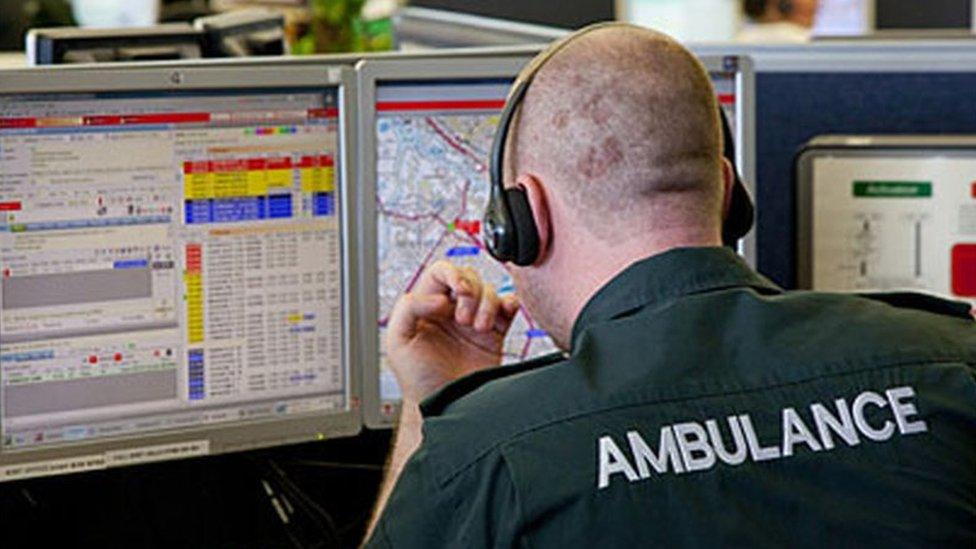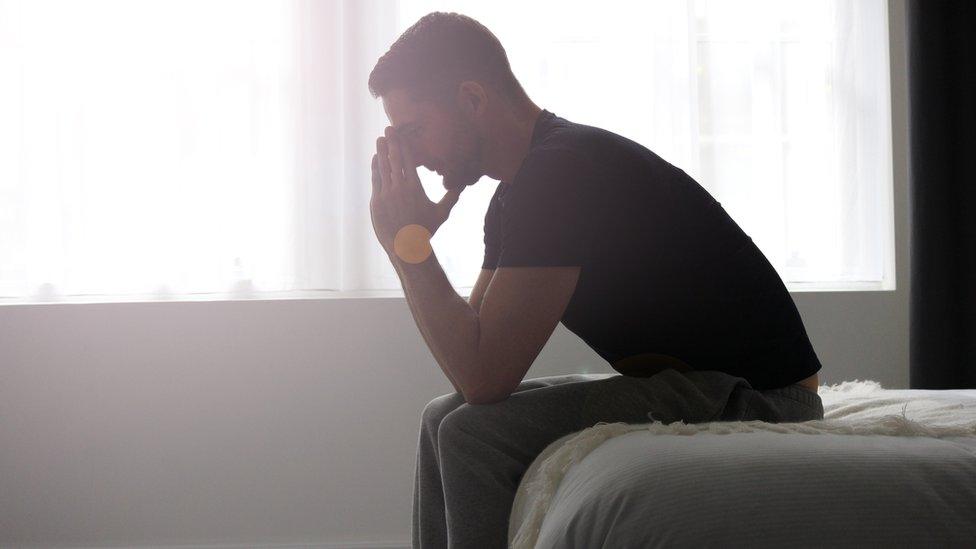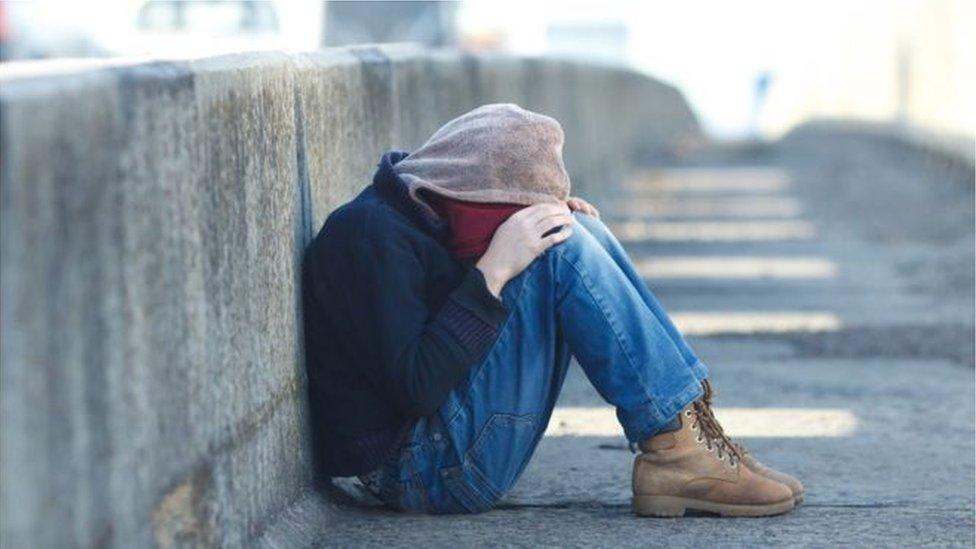Ambulance contact more likely among suicide Scots
- Published

The most common "unscheduled care" contact among Scots who take their own lives is with the ambulance service
Nearly half of Scots who take their own lives contact a GP, NHS 24 or the ambulance service in the year before their death, a report has found.
Scottish Suicide Information Database figures, external show 5,982 people in Scotland died by suicide between 2011 and 2018.
Researchers found the most common "unscheduled care" contact was with the Scottish Ambulance Service.
The Scottish government said it was working to reduce the suicide rate in Scotland.
The report found that, overall, people in Scotland who took their own lives were "significantly more likely" than the general population to have used NHS 24, an out-of-hours GP or an ambulance.
The biggest difference between the two groups was around use of the Scottish Ambulance Service.
Researchers found that people who go on to take their own lives are six times more likely to have had at least one contact with the service in the 12 months before their death.

Toni Giugliano, from the Mental Health Foundation, said good work was being done in parts of Scotland through the "distressed brief interventions" initiative - a project that offers support to vulnerable people at GP practices or accident and emergency units.
However, he told BBC Scotland it was a "fragmented picture".
"We need to do more to ensure the people know where to go in times of distress," he said.
"There has to be more than a response through A&E and we've heard many times from people that we're in touch with that A&E for them has not been the best experience in terms of getting support for their mental health."
The report said it could be argued that these moments were "opportunities for engagement and intervention" that could reduce suicide risk in "vulnerable people".
However, researchers concluded this would be "unreasonable" as there was no information about the individual's state of mind when they came into contact with the care services.
Mental Health Minister Clare Haughey said the report would inform current and future policy.
"Every suicide is a tragedy with a far-reaching impact on family, friends and communities. Suicide prevention is a key priority for the Scottish government and requires ongoing analysis and research," she said.
"Through our Suicide Prevention Action Plan - supported by £3m funding over the course of the current parliament - we are working to reduce the rate of suicide in Scotland and are ensuring that those affected by suicide have access to the right support."

Information and advice
If you or someone you know is struggling with issues raised by this story, find support through BBC Action Line.
- Published10 September 2019

- Published26 June 2019

- Published4 December 2018
